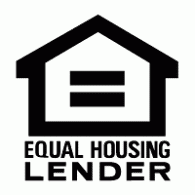- 15051 North Kierland Boulevard 3rd Floor, Scottsdale, AZ 85254
- Mon - Fri: 8:30am - 6:00pm
Introduction & Guide to FHA Loan

Buying a house is a significant investment, and for many people, it can be a challenging process. An FHA loan is a mortgage loan insured by the Federal Housing Administration. This loan is popular because they allow borrowers to purchase a home with a lower down payment and credit score requirement than conventional loans. If you’re considering applying for an FHA home loan, here’s a step-by-step guide to help you acquire one.
Acquiring an FHA loan can be a great way to make homeownership more accessible. First, however, it’s essential to research and ensure that you meet the eligibility requirements and understand the process. By following the steps outlined in this guide, you can confidently navigate the process of obtaining this loan.
In conclusion, obtaining an this loan can be an excellent home purchase option. It’s essential to work with an FHA-approved lender, gather all necessary documents, and find a home that meets FHA requirements. Once you’ve closed your loan, make regular mortgage payments and consider refinancing if it makes sense for your financial situation. Be aware of the potential downsides, but also understand the benefits, such as a lower down payment requirement and more lenient credit score requirements. With the proper preparation and understanding, you can acquire this loan and become a homeowner.
Furthermore, lower rates on FHA loans versus conventional loans may lead to increased activity in FHA lending because borrowers may find it more affordable to obtain financing through the FHA program.
The Federal Housing Administration backs FHA loans and typically has lower down payment requirements and more flexible credit requirements than conventional ones, making them a popular choice among first-time homebuyers and borrowers with lower credit scores. Additionally, the interest rates are often lower than conventional loans, making them a more attractive option for borrowers.
Read more about the differences between FHA loans and conventional loans: https://www.investopedia.com/ask/answers/082616/whats-difference-between-fha-and-conventional-loans.asp
To apply, click here: https://blakemortgage.info/
We’ve been helping customers afford the home of their dreams for many years and we love what we do.
Company NMLS: 150459
www.namb.org


© Copyright 2024 Blake Mortgage. All rights reserved.